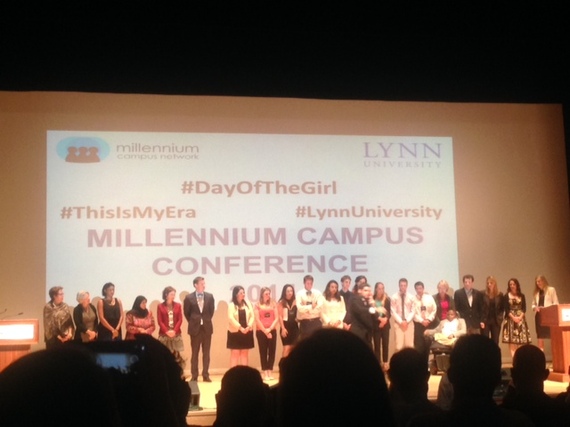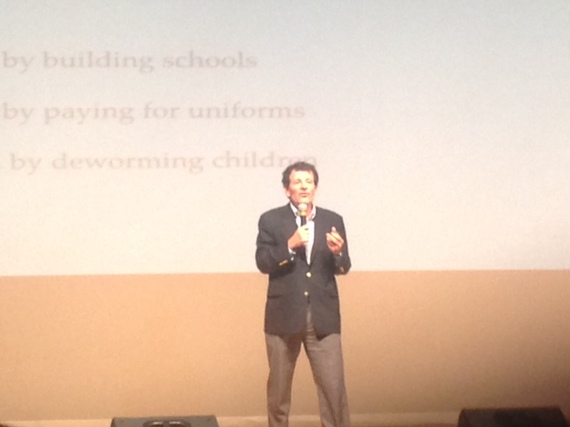This past weekend I had the opportunity to attend the sixth annual Millennium Campus Network Conference at Lynn University as a delegate. I was drawn to the event by the chance to learn from fellow students from across the world about their work in global development and how I can apply it to my work at Duke and beyond. The speakers and the people I met there forced me to question and reflect on my role as a change agent and leader. I learned many valuable lessons from this conference that I think are vital for anyone who is passionate about working in global development. These lessons can be summed in my top three takeaways:
Understanding identity
Throughout the conference, in our various team meetings and sessions, we spoke a about the role of our own identity when working in the field of development How is my identity as a woman a privilege or an obstacle when working in communities outside of my own? How does the color of my skin influence how others perceive and therefore receive me? These are the kinds of questions I asked myself throughout the conference as I continue to explore the dynamics of power and privilege in humanitarian work. I have always believed that the key to a successful and effective program is building trust and creating partnerships, but the discussions this weekend forced me to question whether the playing field can ever truly be equal when we label a person or a community as "giver" and "receiver" and objectify the victims. This dynamic between power and privilege is something that I plan on exploring further as I dive deeper into my studies of global health and cultural anthropology.
Complementing approaches
Along those same lines, I attended a debate on whether grasstops or grassroots initiatives is the most effective approach to solve problems such as education or healthcare a community might face. Grassroots, or the "bottom up" approach that some call it is essential in creating a sustainable program that makes real change. "If you want something to stick, you must engage the community from the beginning." urged Dr. Sakena Yacoobi founder of he Afghan Institute of Learning during the session I attended. At the same time, we cannot ignore the need for funding and resources from the governmental level or the international community. This "top down" approach as it is known is effective only when coupled with community participation from the beginning of the program's implementation. As someone who is passionate about working with communities and cultures to create change, conversations like these-where both sides share their perspectives-are important to be a part of and learn more about.
Power of Partnerships
At the core of the mission of this conference is building partnerships. Millennium Campus Network is built on the idea that change happens when people come together collaborate on a common goal or project. It was inspiring to meet people from all over the world with diverse interests and passions but who are connected by the drive and desire to help make the world a better place. I met students from all over who are fighting against systems and from people who are trying to oppress them, but who continue to stand strong for what they believe in. There is nothing more motivating than being surrounded by other young leaders like these. Ranging from issues such as global health, human trafficking, and environmental sustainability, the fellow delegates I met had found or are on their way to finding their purpose and passion. Wherever they were on their journey to making an impact, it was clear that they were all well on their way.


